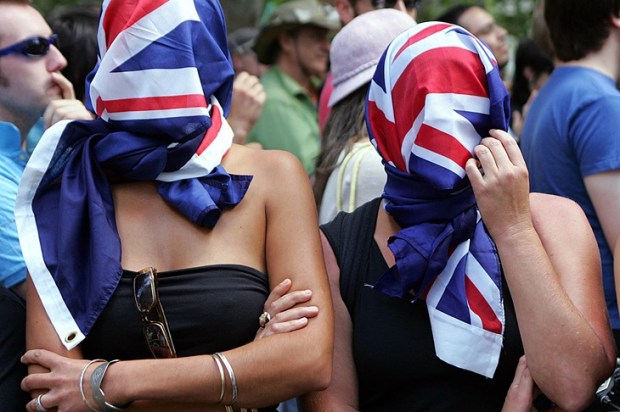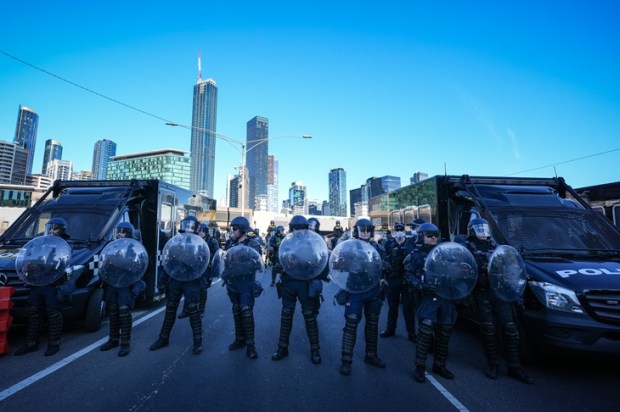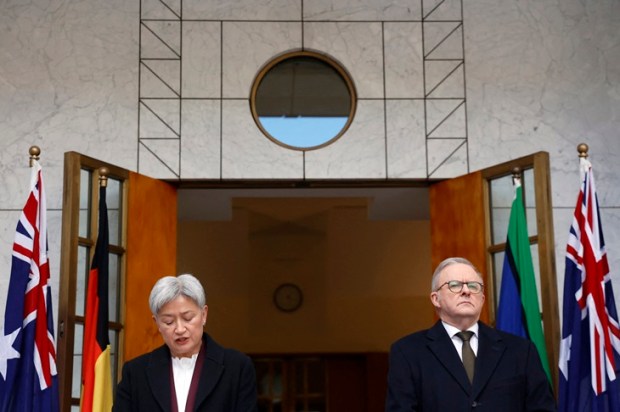Trans influencer Dylan Mulvaney recently said the backlash against Bud Light had left them having ‘trouble sleeping’.
They are not the only ones. Executives across the corporate landscape are starting to realise that picking controversial, fringe activist partnerships could have a very real and prolonged negative impact on their brand image.
According to a New York Post article, the financial fall-out of the Mulvaney partnership is spreading across other brands distributed by Bud Light’s parent company, Anheuser-Busch, with Budweiser suffering an 11.4 per cent decline in sales at the end of April.
As reported by the New York Post: ‘It’s not just a Bud Light issue, it’s an Anheuser-Busch portfolio problem now,’ said Bump Williams, Chief Executive of the consultancy company.
‘We need to clarify the facts that this was one can, one influencer, one post, and not a campaign, and repeat this message for some time…’ said Anheuser-Busch Chief Executive, Michel Doukeris, to worried investors.
The existence of these statements demonstrates the level of harm one careless marketing idea can cause to the reputation of an enormous corporate entity, but to call it a ‘one off’ mistake is a tad generous, given the saturation of Woke influencer marketing.
It has been over a month since Bud Light sent Mulvaney personalised beer cans to celebrate their ‘girlhood’, which the influencer featured on their social media account while dressed up in the style of Holly Golightly from Breakfast at Tiffany’s.
The adoption of trans marketing across the industry, especially in female spaces where men have been replacing women in lucrative contracts, has created a hostile consumer environment. Mulvaney, in particular, has advertised women’s sports bras, fashion lines, and makeup drawing the ire of women who are sick of seeing men in their spaces – parodying their gender. Even men have been made uncomfortable by previously masculine brands pandering to progressive politics. Don’t believe the advertising. Blokey blokes are not keen on being closely associated with glitter and rainbows.
What might have been an otherwise unnoticed partnership for Bud Light took place within this crucible of customer fury, leaving Bud Light as the proverbial tipping point.
The machine of progressive advertising has found the limit of public tolerance for the unnatural marriage between commerce and politics. ‘You’re a good person if you buy this product’ was always a cheap form of emotional manipulation, and now it’s just plain irritating. (Watch this space, because the Net Zero mob are doing the same thing.)
Boycotts and contract cancellations have plagued the beer brand ever since, with American customers leaving Bud Light sitting on shelves across the nation. This has reportedly cost the company billions of dollars in market value with sales continuing to fall, in part because powerful online voices are whipping up both sides of the audience into consolidated boycotts.
‘There’s no way of winning those people over…’ said Mulvaney, which is true. If anything, the public is exhausted by Woke politics saturating the corporate world to the point that some activists have raised the alarm that acceptance of the LGBTQ+ community is going backwards.
Having rainbow logos everywhere and ‘Pride’ themed decorations in every store has not increased supported for the LGBTQ+ community. Instead, it has overwhelmed the general population who find people’s obsession with their sexuality and pronouns not only tiresome, but troubling. The natural reaction to aggressive marketing is to reject the product on offer – and that is exactly what people are starting to do with activist politics.
For their part, Bud Light have been trying to patch up their error for weeks, after realising it was more serious than a trending hashtag. Originally, the company issued a ‘sort-of’ apology that satisfied no one. Since then, it has tried to backtrack – putting distance between itself and the failed marketing attempt. Marketing vice president Alissa Heinerscheid along with Daniel Blake are both on a leave of absence.
The catastrophic repercussions for Bud Light have to be viewed in context. Mulvaney was already on the nose after their ‘365 days of girlhood’ serious went viral, documenting Mulvaney – a man – deciding to live as a girl (not a woman). The result was a series of videos that showed a stereotype of ‘girlhood’ that many women found to be offensive and insulting.
It’s no longer acceptable to do this to any other identity group but, as far as progressive politics is concerned, pretending to be a woman by employing exaggerated features and oppressive cringe is not just ‘powerful’, it’s better than real womanhood. Indeed, there are thousands of TikToks from the trans community telling women how they are ‘better’.
Women are being increasingly reduced to a ‘performance’, including through the rise of ‘gender-neutral language guides’ that go so far as to erase terms like, ‘mother’ and ‘woman’ turning them into ‘pregnant people’ and ‘bleeders’ to be more ‘inclusive’.
It is a linguistic and social assault on women that has led to the very real erasure of basic rights, including the right to sex-segregated spaces such as women’s bathrooms and change rooms. Women are also being forced to compete against men in sport. This is what happens when you allow language to say that men can transition into literal women, instead of mimicking them with varying degrees of success. If we were honest about our language and admitted that transwomen were still biological men, female rights would not be under threat.
Bud Light can’t win on any front, with the LGBTQ+ community also boycotting the brand for not doubling down on the trans message.
NBC News reports that gay bars in Chicago are boycotting all Anheuser-Busch products because they expect them to ‘align with their values’ and ‘not trample on the rights of customers’. Another accused the brand of ‘siding with a group of people who are being hateful’.
Or maybe people are sick and tired of Woke politics? Women certainly are, and now men are fed up as well. Brands should stick to selling good products, and stop behaving like smarmy political candidates repeating political jargon that has nothing to do with their products. This is the dark side of Woke marketing, and it is about to get a lot worse with the save the planet agenda that will see everything you eat, drink, and wear dictated by corporate allegiance to the climate cult.

























